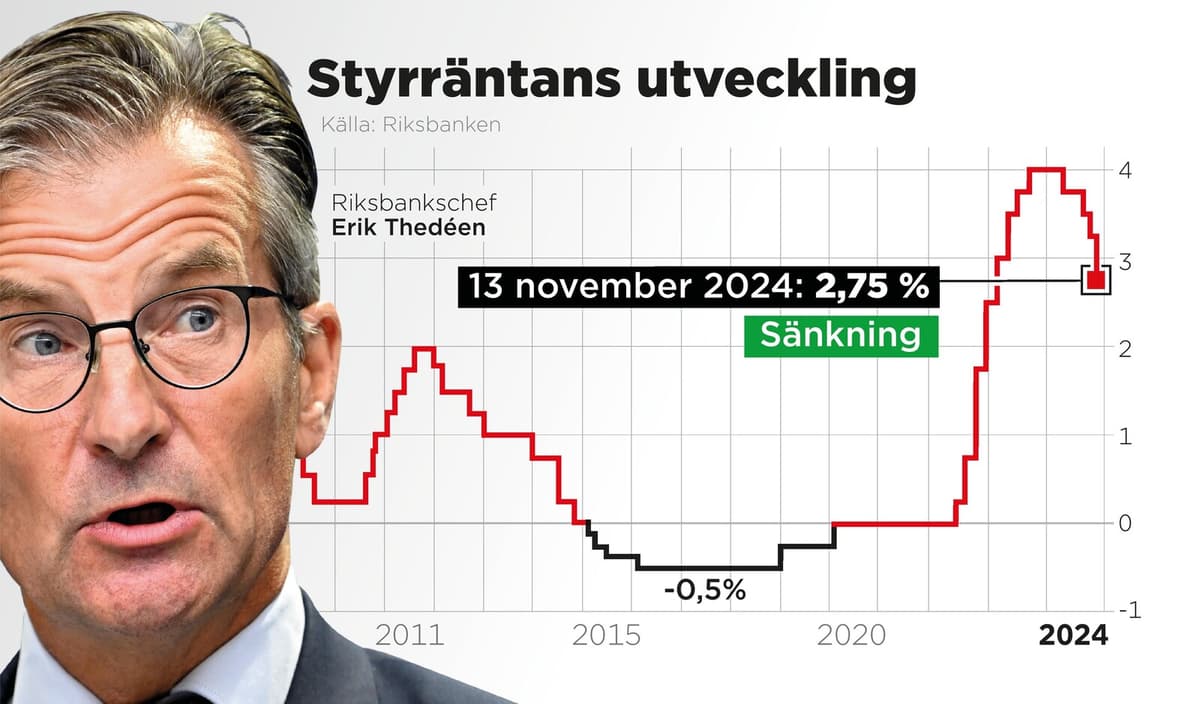The reduction – twice as large as normal interest rate adjustments – was expected by both the market and most analysts. Unexpectedly slow growth motivates the decision, according to Erik Thedéen.
It seems that both households and companies are holding onto their wallets a bit tighter. Then we mean that it is motivated to stimulate, he says to TT.
This will improve households' economy and facilitate companies' investments, he adds.
Uncertainty has increased
The Swedish Central Bank also confirms its interest rate path, which points to two reductions down to 2.25 percent by the summer of 2025. But uncertainty has increased, according to Thedéen.
This is because economic policy could potentially be radically changed in the world's largest economy. Then we must take that into account as a significant uncertainty, says Thedéen.
It is primarily Trump's threats of heavy tariffs, 10-20 percent against countries like Sweden, that risk causing trouble according to Thedéen.
In the short term, the tariffs and potential countermeasures from other countries – a so-called trade war – pose a risk of higher inflation and lower growth.
How that then plays out in an inflation path and monetary policy is too early to say. It will become a rather messy situation next year, one can think. Then we will simply have to analyze it, says Thedéen.
Strong downward pressure on the krona
The krona has been strongly pressured downward against the dollar ahead of the US election, down by around 70 öre. The Swedish currency has also lost value against the euro.
A weaker krona is normally an inflationary impulse for the Swedish economy, via higher import prices. But since demand is so low right now, the impact does not seem to be that large, according to Thedéen.
Then we believe and hope that this is temporary, he says about the exchange rate.
After the repo rate peaked at 4 percent, the Swedish Central Bank has, with Thursday's so-called double reduction, lowered the repo rate by a total of 1.25 percentage points within a period of about six months.
We think that is fast and gradual, says Thedéen.






